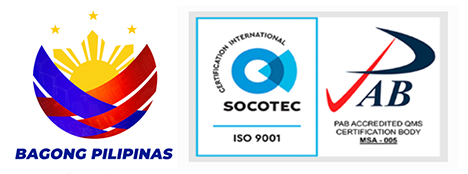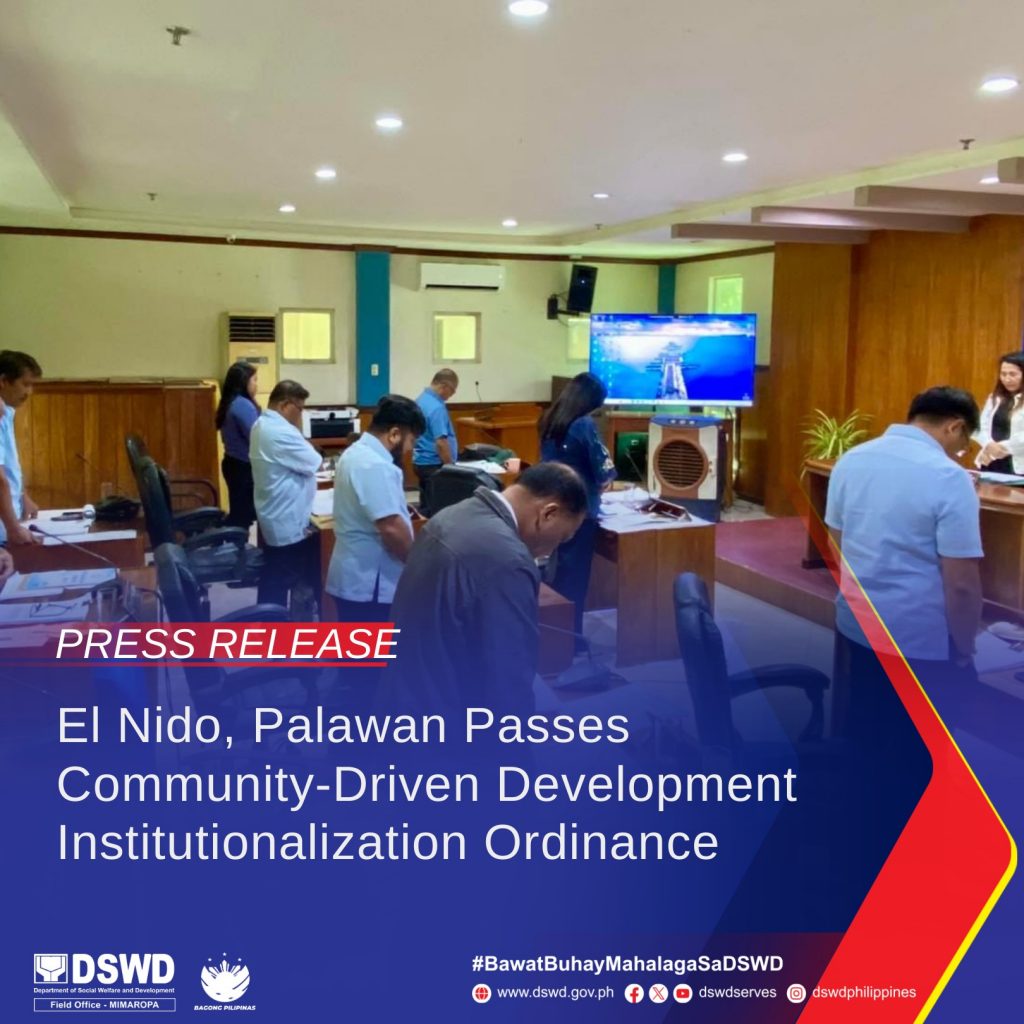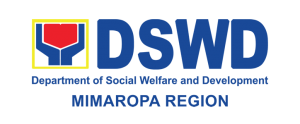The Municipality of El Nido in Palawan formally institutionalized Community-Driven Development (CDD) through the passing of Municipal Ordinance No. 037, Series of 2024, on August 28, 2024.
“An Ordinance Institutionalizing the Community-Driven Development (CDD) Approach in the Identification, Prioritization, and Resource Allocation of Locally Funded Programs and Projects in the Municipality of El Nido, Palawan,” was passed by the Sangguniang Bayan and approved by the Municipal Mayor, Hon. Edna Gacot-Lim.
This ordinance affirms the local government’s commitment to empowering its communities and involving them in governance and decision-making processes, where participation, transparency, and accountability are practiced.
Once fully implemented, the ordinance will adopt the Department of Social Welfare and Development (DSWD) Kapit-bisig Laban sa Kahirapan – Comprehensive and Integrated Delivery of Social Services (KALAHI-CIDSS) processes, such as the Participatory Situational Analysis (PSA), as part of the municipality’s developmental planning.
PSA is a process used by KALAHI-CIDSS in which communities and stakeholders collectively analyze the local situation, identify problems, propose solutions, and prioritize actions.
Another key feature of the KALAHI-CIDSS process is the resource allocation and sharing scheme, where the municipal, barangay, and community levels contribute resources to bring prioritized solutions or projects to fruition.
The ordinance also emphasizes the active participation of the community in all stages of project implementation, from planning and procurement to actual construction. This process fosters a sense of ownership among community members.
To ensure the functionality and sustainability of sub-projects, the ordinance mandates the creation of Operations and Maintenance (O&M) Groups. These groups will be formed from among community members with relevant skills, expertise, and a vested interest in the project, ensuring its optimal use and care.
Furthermore, the ordinance promotes continuous and open communication between the local government and the community, establishing mechanisms for ongoing engagement among government agencies, the community, and other stakeholders.
CDD institutionalization has long been advocated by the KALAHI-CIDSS program, from the grassroots to the national level, with the belief that community empowerment leads to holistic societal development.
The Municipality of El Nido joins the 24 other municipalities in MIMAROPA institutionalizing CDD at the municipal level, demonstrating that KALAHI-CIDSS’ advocacies, programs, and activities resonate with its principles and values. #
![]()



